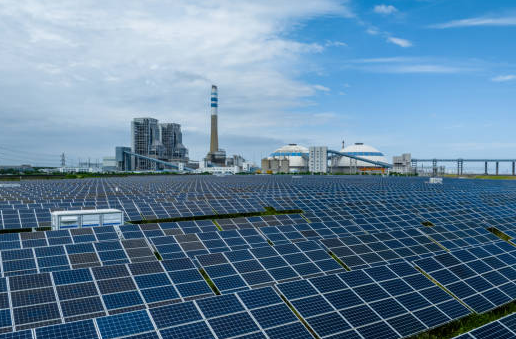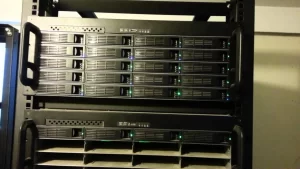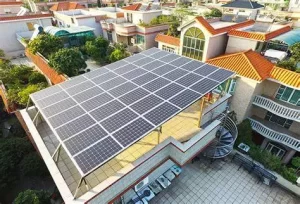Unlocking the Potential of Solar Energy Battery Storage
In the pursuit of a sustainable and clean energy future, solar energy has emerged as one of the most promising sources. However, the intermittent nature of solar power generation has long been a challenge. This is where solar energy battery storage comes into play, holding the key to unlocking the full potential of solar energy and transforming our energy landscape.
Solar energy battery storage systems work by capturing the excess electricity generated by solar panels during periods of high sunlight and storing it for later use when the sun is not shining. This not only ensures a continuous supply of power but also increases the overall efficiency and reliability of solar energy systems.
One of the significant benefits of solar energy storage is its ability to provide energy independence. Homes and businesses equipped with these systems can reduce their reliance on the traditional power grid, especially during peak demand hours when electricity prices are high. This offers not only cost savings but also a level of resilience against power outages. For example, in remote areas where grid connectivity is limited or unreliable, solar energy storage can be a game-changer, enabling communities to have a stable and self-sufficient power supply.
The technology also plays a crucial role in grid stability and integration of renewable energy. As the share of solar and other renewable energies in the power mix increases, the variability in supply can put stress on the grid. Batteries can act as buffers, absorbing excess power when generation exceeds demand and releasing it when needed, thereby helping to balance the grid and ensure a smooth and consistent power flow.

Moreover, the advancements in battery technology have been remarkable in recent years. Lithium-ion batteries, once primarily used in consumer electronics, have now become the preferred choice for solar energy storage due to their high energy density, longer cycle life, and improving cost-effectiveness. Newer chemistries and designs are constantly being developed, further enhancing the performance and reducing the cost of these batteries.
The potential of solar energy storage is not limited to the residential and commercial sectors. In the transportation sector, electric vehicles (EVs) can be integrated with the grid and solar energy storage systems. EV batteries can be used as mobile energy storage units, feeding power back to the grid when parked and connected, contributing to overall grid stability and energy management.
However, despite the numerous advantages, there are still challenges that need to be addressed to fully unlock the potential of solar energy storage. The initial cost of installing a solar energy battery storage system remains relatively high, although prices have been steadily declining. This can be a barrier for widespread adoption, especially for households and small businesses with limited budgets.
Another challenge is the efficient management and optimization of the battery storage systems. Sophisticated software and control algorithms are needed to ensure that the batteries are charged and discharged at the optimal times to maximize their lifespan and performance. Additionally, there are issues related to battery recycling and disposal at the end of their useful life to minimize the environmental impact.
To overcome these challenges and realize the full potential of solar energy battery storage, a combination of technological innovation, policy support, and market-driven solutions is required. Governments around the world are implementing policies such as subsidies, tax incentives, and net metering programs to encourage the adoption of solar and storage systems. Research and development efforts are focused on improving battery performance, reducing costs, and developing more sustainable battery chemistries.
In the long run, as the cost of solar energy storage continues to decline and the technology becomes more efficient and accessible, it has the potential to revolutionize the way we produce, consume, and store energy. It can enable a decentralized and democratized energy system where individuals and communities have greater control over their energy sources and contribute to a more sustainable and resilient energy future.
In conclusion, solar energy battery storage represents a powerful tool in the transition to a clean and sustainable energy ecosystem. By addressing the existing challenges and fostering innovation, we can unlock its true potential and create a world powered by reliable and renewable solar energy. The journey may have its obstacles, but the prospects of a cleaner, more energy-independent future are well worth the effort.
Contact us
- Email:[email protected]
- Tel: +86 13651638099
- Address: 333 Fengcun Road, Fengxian District, Shanghai
Get A Quote Now!
Related product links are available directly
Site storage products:Site storage products 归档 – (energystoragecontainer.com)
Lithium Battery:Lithium Battery 归档 – (energystoragecontainer.com)
Read more

Unveiling Photovoltaic+Energy Storage: Four Major Application Scenarios Leading the Future of Energy
In this way, the energy landscape is evolving, and one of the most thrilling developments in renewables is the integration of photovoltaics energy storage.

From Theory to Practice: Four Methods for Estimating Photovoltaic Power Generation
Photovoltaic power generation has become an essential part of modern energy solutions, particularly in home solar systems and distributed power applications

Rack-Mounted Lithium Iron Batteries: Creating Efficient and Reliable Energy Storage Solutions
When it comes to modern energy solutions, rack-mounted lithium iron batteries are taking center stage in a variety of industries. Whether you’re powering data centers, stabilizing energy for households, or keeping critical systems online at 5G base stations, these batteries have become the unsung heroes of our electrified world.

Late Night Energy Saving Tips: How to Maximize Electricity Savings During Off-Peak Hours
With rising energy costs, homeowners are increasingly exploring innovative ways to save on their electricity bills. One effective approach is utilizing off-peak hours—times when electricity rates are significantly lower due to reduced demand.
